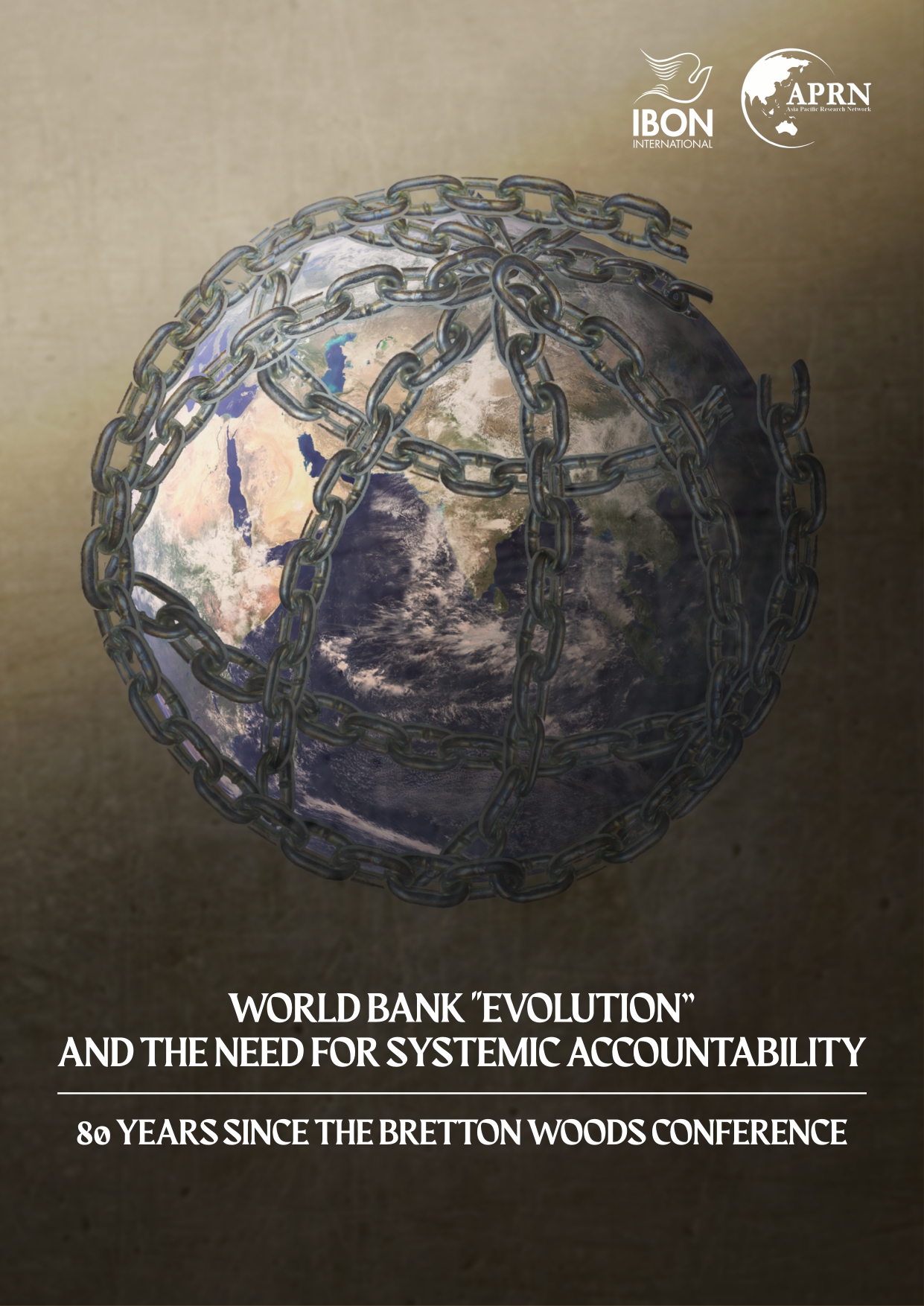- Version
- Download 134
- File Size 12.89 MB
- File Count 1
- Create Date April 11, 2024
- Last Updated April 11, 2024
World Bank "Evolution" and the need for systemic accountability: 80 years since the Bretton Woods Conference
The year 2024 will mark 80 years since the Bretton Woods Conference of July 1944, also known as the UN Monetary and Financial Conference, which birthed the World Bank and the IMF. Across the decades, the World Bank’s major policy and thematic shifts have had their own histories. Notable evolutions and reforms within the Bank occurred amid geopolitical dynamics, especially in line with US priorities in response to economic crises. Similarly, 2024 is another moment for World Bank reform or evolution: a process that could be traced to the Bank’s response to the multiple crises since 2021.
Anticipated in 2024 is the release of the operational guide for World Bank evolution through the formal launch of the new “World Bank playbook,” along with a scorecard (indicators for its outcomes). In its Spring Meetings in April 2024, discussions on budget needs for the Bank’s evolved work are expected to take place.
This policy brief critiques World Bank evolution through three issues facing its reform: 1) the long-standing bias of the Bank for private capital and finance; 2) a denial of the history of World Bank harms; and 3) the influence of dominant powers within the Bank to pursue geopolitical and economic interests. The paper ends with a discussion on the World Bank’s role in supporting a system that generates inequalities, and the need to highlight its culpability. #
